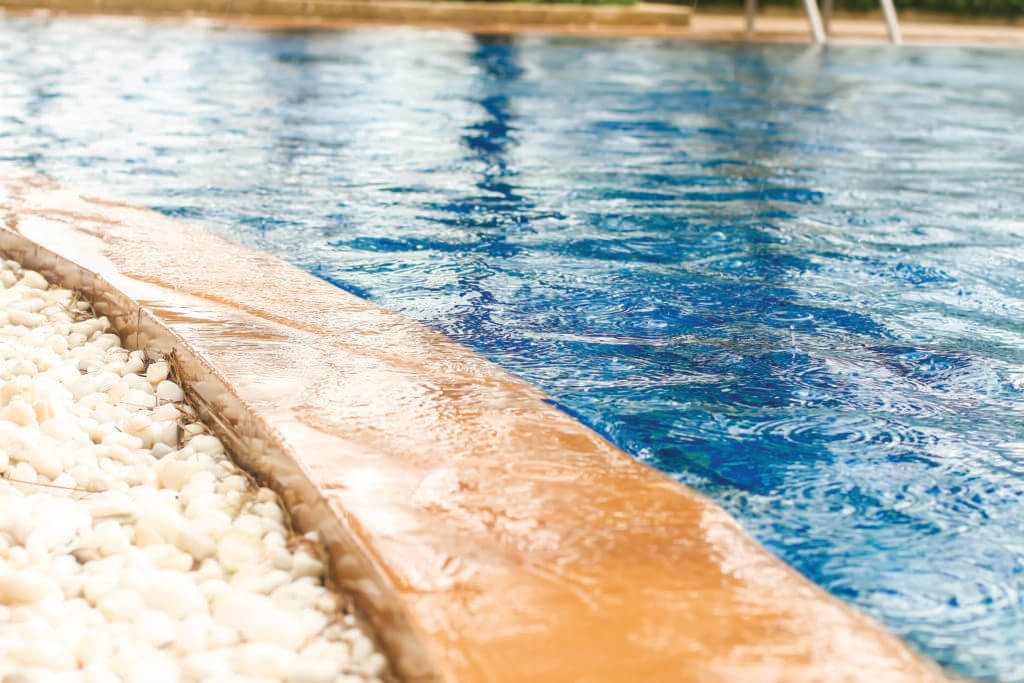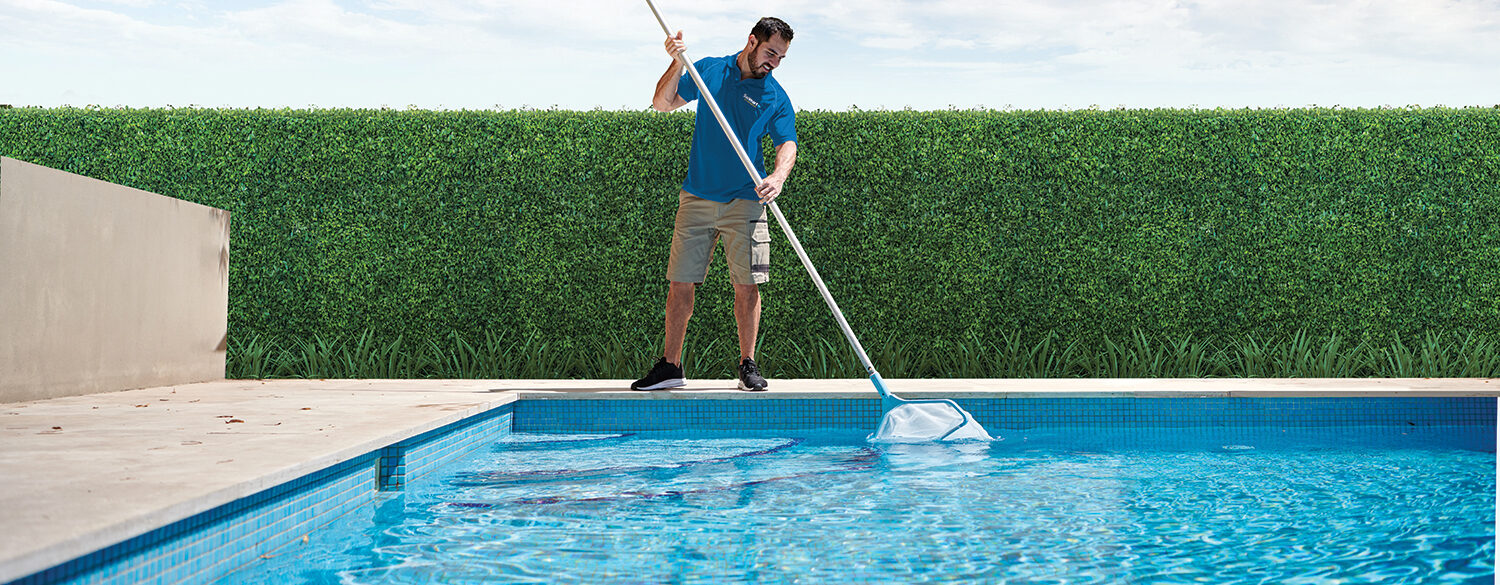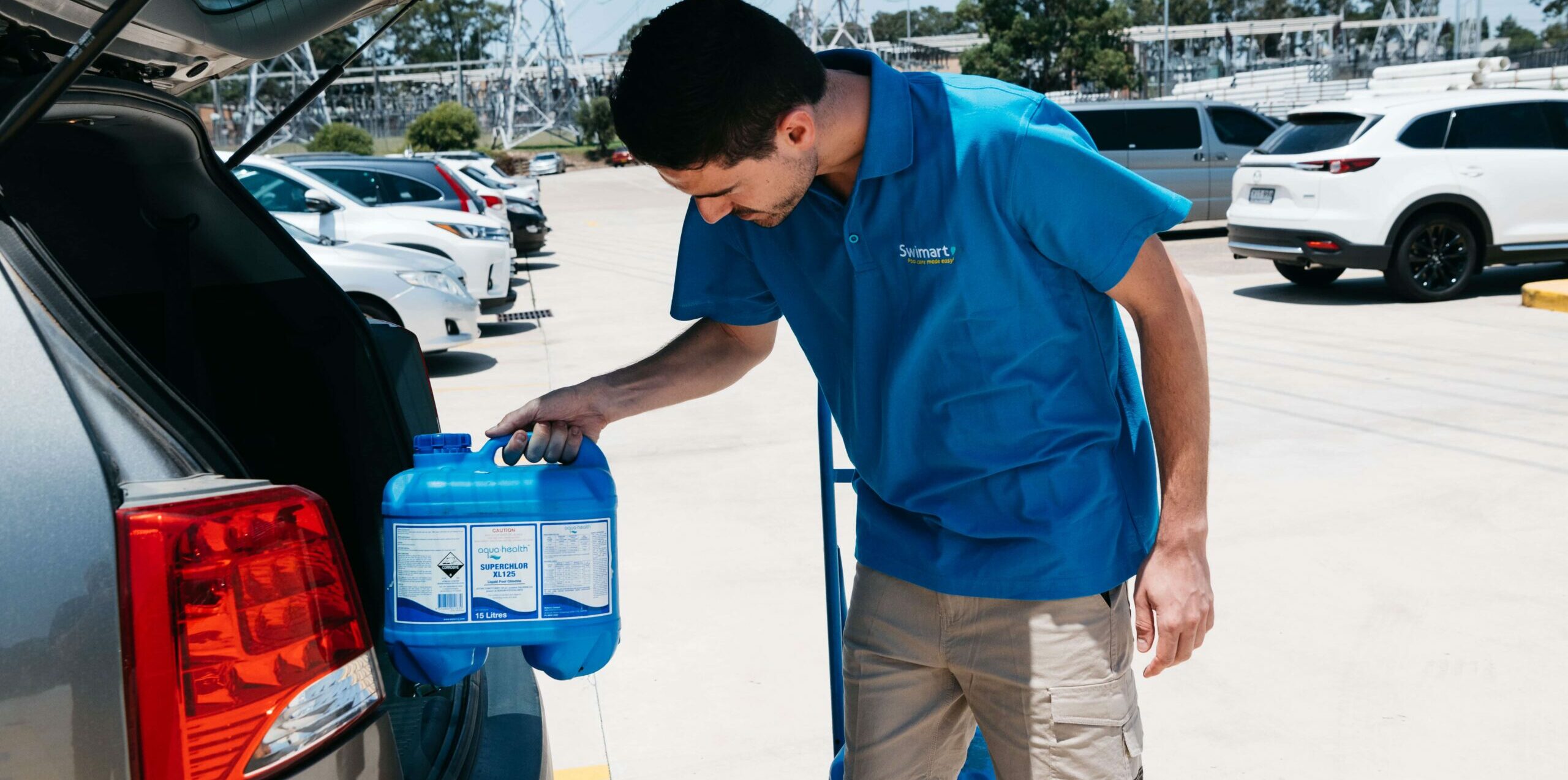| Swimart's national manager Chris Fitzmaurice warns owners of swimming pools affected by the recent floods and heavy rains along the east coast to not to empty their pools without first checking with an expert due to the risk of serious damage.“Our hearts go out to those impacted by the recent floods and storms,” he says. “We understand the number one priority is cleaning out houses and making them habitable, but it must be remembered that flooded swimming pools present a unique set of hazards.
“It’s certainly not essential that a pool must be restored to use immediately, but it is vital to assess the condition of the pool and make it safe before starting any work.
“The pool shell acts as a kind of 'boat' when empty of water. If the surrounding soil is saturated, the pool will have a tendency to float, which can cause it to shift or crack.
“The fact is that all swimming pools – whether they’re vinyl-lined, fibreglass or even concrete ones weighing over 50 tonnes – can float when empty. The upward pressure of the water under the floor can actually cause it to lift.”
Most pools are equipped with a hydrostatic relief valve in the floor which will allow ground water to enter the pool to keep the equilibrium and relieve build up of pressure. However, the valve could be faulty or not able to cope with the amount of pressure caused by the ground water. Therefore it’s wise to consult an experienced technician if you must empty the pool.
Chris advises that there are a number of key steps to restore flood-affected swimming pools.
“An unused, flood-affected swimming pool is not likely to transmit or become a source of diseases in the short term unless sewage has contaminated the pool. However, as it generally won’t be filtered or sanitised, it is important to check for evidence of mosquitoes on a daily basis,” Chris says.
 SWIMART TIPS FOR OWNERS OF POOLS AFFECTED BY FLOODS AND HEAVY RAIN SWIMART TIPS FOR OWNERS OF POOLS AFFECTED BY FLOODS AND HEAVY RAIN
- Determine whether fencing is intact to prevent children from accessing the pool. If in doubt, refer to the Pool Safety Council for guidelines on pool fencing requirements
- Secure or restrict access to the area if possible, particularly if fences have been damaged or debris has made the area dangerous
- Do not empty your pool, as the ground water may have become saturated and the pool could pop or crack. Experienced pool technicians should only empty pool water when it’s deemed safe
- Check the pump house and other structures in case snakes, spiders and other pests have harboured there
- Have a licenced electrician check the circuits and electrical fittings of your pump, timer and any electrical equipment. This may need to be done in consultation with a pool technician in case electrical components need to be replaced
- Consult with a pool technician on how to ‘flocculate’ the pool water. Aluminium sulphate, a flocculant, will cause suspended solids in the water to congeal into a filterable mass and settle to the bottom. The flocculated material should be vacuumed to waste and not filtered, as it will rapidly clog the filter
- If your pool is full of water but isn’t able to be restored, check it daily for evidence of mosquitoes. If mosquitoes and / or lava is detected, speak to a pool technician about how to remove them
- If the pool water starts to turn green, an algal bloom is developing and you should consult with a pool technician about how to address this
- Only turn your filter back on once water quality has been restored and an electrician has checked your equipment

|
|


 AUS
AUS NZ
NZ 



 SWIMART TIPS FOR OWNERS OF POOLS AFFECTED BY FLOODS AND HEAVY RAIN
SWIMART TIPS FOR OWNERS OF POOLS AFFECTED BY FLOODS AND HEAVY RAIN